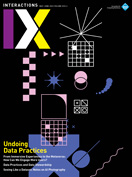Authors:
Daria Loi
This ongoing irresponsible behavior will no doubt be remembered in history as one of the greatest failures of humankind.
— Greta Thunberg
In Triangle of Sadness, director Ruben Östlund points the finger at what increasingly seems to fuel our society: greed, power, and hypocrisy. After seeing the movie, it's hard not to draw parallels between the crude reality on-screen and the crudity within moments and contexts one experiences as a professional in the high-tech sector.
As Naomi Fry [1] writes in her New Yorker article about the film: "In Östlund's conception, the entirety of contemporary life has become structured according to the unequal, savage logic wrought by capitalism, a fact that is barely occluded by the blandly sleek, comforting banalities that capitalism itself produces." In the movie, a cast of archetypal characters gleefully showcase sanctimonious behaviors, self-serving biases, mercenary attitudes, shameless hypocrisy, and narcissism. While their contexts differ, each character is driven to satisfying their selfish desires for wealth and power, and is defined by a staggering ability to sanitize the nature of their actions as if they were acceptable mundane behaviors. Over dinner, a British arms manufacturer describes how his products "have been employed in upholding democracy all over the world"; an attractive influencer states that her relationship with her boyfriend is simply "good for business"; and stewards continue serving lavish courses despite their customers' seasickness, seemingly unfazed by the surrounding cascades of vomit. The what (outcome), the how (method), and the why (values) of each character is excessively and uncompromisingly depicted. Their goal is to accumulate more, and such an end justifies any means.
One could argue that the hightech community, too, has become structured "according to the unequal, savage logic wrought by capitalism" [1] and I'd argue that its what (outcome), how (method), and why (values) are frequently rather questionable.
Several years ago, after viewing a demo of a new technology, I asked the inventor if he could imagine ways in which his design might be harmful. With a puzzled look, he replied, "Absolutely not." After I listed a handful of very problematic and likely misuses of his creation, his response was that he could not be held accountable for what other people might do with his technology. Technically, he was not incorrect. Another time, I asked a colleague if he would put his newly designed surveillance system in his own home. With an incredulous look, he replied, "Of course not." When I asked him why he thought others should put it in their homes, he said he was confident that marketing would create the right value propositions to monetize such a highly efficient system. Sadly, he was right. Earlier in my career, I was offered the opportunity to be on a fast-promotion track by focusing on a research agenda centered on leveraging behavioral manipulation to increase product sales. When I refused to jump on the opportunity due to the insidiousness of the proposed scope, not only did my manager laugh at what she felt was pure stupidity but also a number of colleagues took the opportunity without hesitation. They were indeed promoted, several years ahead of me.
We seem to have stopped questioning whether something should be designed.
Over the past two decades, I have collected many examples like the ones above. Ongoing discussions with colleagues and mentees confirm that I am not the only one experiencing such puzzling dynamics. Like characters in a movie, we—the high-tech sector—gleefully put on golden blinders and keep moving in one direction, toward satisfying our selfish desires for wealth and power.
We seem to have stopped questioning whether something should be designed. We seem to have forgotten the delicate relationship between what is created and how to create. We seem to believe that the values we cherish in private life do not apply when we clock in. Our what, how, and why are too frequently distorted and, like one of Östlund's characters would say, we seem blissfully comfortable "in den wolken" (in the clouds), far from everyday reality. This may sound harsh, yet, let's face it, we are shallower than we dare to admit.
Similar to the Eastern European character in Triangle of Sadness who shares how he became a millionaire ("I sell shit," he says, laughing), the hightech industry more frequently than not seems to be self-absorbed in endless manure production—because, it turns out, some will buy manure that they do not need if the surrounding apparatus makes the manure look and feel like must-have gold.
Let's unpack these strong statements with some examples.
In a 2019 New York Times op-ed, Charlie Warzel [2] discusses how the past few years "have taught us that there's an Occam's razor quality to any explanation of the toxicity of our online platforms" and that the origin; sin is a pure prioritization of growth—"above all else and at the expense of those of us who use the services."
Think, for instance, about YouTube's algorithm-tweaking strategy to hit 1 billion hours of viewing per day, despite employees' cries to change its recommendation engine to quash misinformation, conspiracies, and incendiary content. As a former senior manager confessed in the original Bloomberg News article that reported the case [3], "We were so in the weeds trying to hit our goals an drive usage of the site, I don't know if we really picked up our heads."
A 2018 New York Times investigation showed yet another example of this growth at any cost philosophy, when we learned that Facebook executives ignored warning signs that their social media platform could "disrupt elections, broadcast viral propaganda and inspire deadly campaigns of hate around the globe" [2]. The rest of the story is, of course, history.
A third notable example comes from an industry I worked in for over a decade: consumer electronics. Think, for example, about the most beloved gadget in everyday life: the mobile phone. Tech companies are not forced to follow any significant repair and recycling standard and their never-ending push to roll out newer, slimmer, lighter, more-featured devices at a sustained cadence comes at a cost that is higher than the already high price tag. From proprietary screws to strong adhesives to planned obsolescence strategies, what we hold in our hands is frequently designed to be replaced, not fixed or properly recycled. With 8.6 billion mobile device subscriptions worldwide as of 2021 [4] and a product life cycle that is frequently on a two-year cadence, it is easy to estimate what type of impact manufacturers' avidity and consumers' lust for handheld devices bring to our planet yearly.
 | The future, 2019. |
The high-tech sector has placed greed at the forefront of its decision making. Consequently, what is designed and its social as well as environmental impacts are conveniently parked backstage. I'd argue that our incapacity to focus on designing and producing the right thing (what) is frequently connected with our incapacity to recognize how to design.
Compare, for instance, human-centric processes such as the Design Council UK Double Diamond and its most recent framework for innovation [5] with how most tech firms design and develop products. Based on my experience in multiple contexts, I'd argue that the vast majority of companies completely skip the first diamond, jumping right into designing and developing products without any clear understanding of why or for whom. The pattern of such a sad yet ever present phenomenon unfolds each time in a similar manner. First, speed and quantity are prioritized above quality and value. Market and user research are marginally executed, if at all. Design corners are cut, user testing skipped or ignored. Eventually something is quickly shipped with great fanfare and the motto "we shall fix it later on." Then major issues bubble up, users do not seem to comply with projected sales, and the house of cards starts crumbling. Massive judgment errors and the lack of a grounded understanding of user needs and market trends result in having to fix things. So, time and effort are feverishly invested to place lipstick on what is (and will likely remain) a pig.
The tech industry is so stubbornly focused on answering questions quickly that it forgot what questions deserve an answer and how to approach the question-answer endeavor. Not only that, but success is measured using parameters that have little to do with the advancement of humanity and the thriving of our planet. Greed and power have become the key drivers and we seem incapable of stopping, breathing, reflecting, and fixing the mess we have created.
I understand—this is an awfully bleak and depressing way to look at things, yet I see no reason to sugarcoat it. Allow me to say that, despite it all, I remain an optimist. I believe we humans are capable of goodness and I am encouraged by recent progress, mostly made by the newer generation that, thankfully, is fed up with the mercenary logic of the past decades.
This is a fierce generation. They are not scared of standing up and pushing for quality instead of quantity. This is a generation that prioritizes equity and fairness instead of greed and power. A generation that was left with little wiggle room and knows relentless, fearless, and uncompromised action is the only way forward.
I am looking at role models such as Malala Yousafzai, Greta Thunberg, Colin Kaepernick, David Hogg, Marley Dias, Payal Jangid, Avery McRae, Xiuhtezcatl Roske-Martinez, Melati and Isabel Wijsen, Shamma bint Suhail Faris al-Mazrui, Isra Hirsi, Yara Shahidi, Jamie Margolin, and Mari Copeny, to mention a few. These young people do not shy away from the hard work, and their infectious focus and courage are inspirational. They push us to become a better version of ourselves by standing up against impossible odds, armed with clarity on what matters, how to achieve it, and why.
If there is something the high-tech industry needs, it's minds, hearts, and souls like these. People with clarity on what matters and no interest in selling their souls or compromising their integrity in exchange for massive salaries and perks. Unlike the end of Triangle of Sadness, where the characters cannot escape the capitalistic dynamics of the powerful and the powerless, I believe that the work that many have started in recent years will dramatically shift the high-tech sector to a point where technology will return to what it is supposed to be: a tool for the betterment of pluralist societies.
Greta Thunberg once said that "[h]ope doesn't come from words. Hope only comes from actions." I do not have the ability to bring hope with this column, but I can certainly ask us to act.
1. Fry, N. In "Triangle of Sadness," the crudity is the point. The New Yorker. Oct. 28, 2022; https://www.newyorker.com/culture/cultural-comment/in-triangle-of-sadness-the-crudity-is-the-point
2. Warzel, C. Big tech was designed to be toxic. The New York Times. Apr. 19, 2019; https://www.nytimes.com/2019/04/03/opinion/facebook-youtube-disinformation.html
3. Bergen, M. YouTube executives ignored warnings, letting toxic videos run rampant. Bloomberg News. Apr. 2, 2019; https://www.bloomberg.com/news/features/2019-04-02/youtube-executives-ignored-warnings-letting-toxic-videos-run-rampant
4. Alvarez, P. Charted: The rise of mobile device subscriptions worldwide. Visual Capitalist. Oct. 18, 2022; https://www.visualcapitalist.com/cp/two-decades-of-mobile-device-subscriptions-worldwide/
5. Design Council UK. Framework for innovation: Design Council's evolved Double Diamond. May 17, 2019; https://www.designcouncil.org.uk/our-work/skills-learning/tools-frameworks/framework-for-innovation-design-councils-evolved-double-diamond/
Daria Loi combines design strategy with experience research and innovation to enrich people's lives and humanize technology. She is vice president of UX and design at Fishtail, serves on the DemocracyLab board of directors, and is honorary professor at the University of Newcastle, Australia. [email protected]
Copyright held by author
The Digital Library is published by the Association for Computing Machinery. Copyright © 2023 ACM, Inc.








Post Comment
No Comments Found